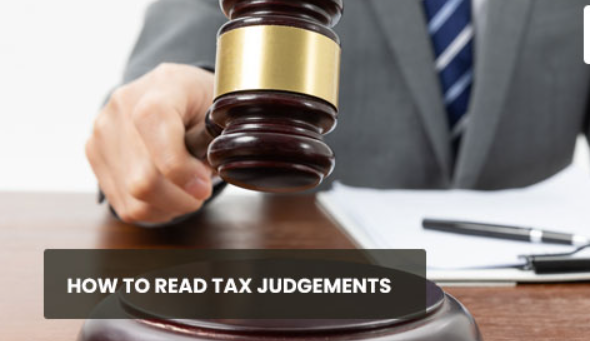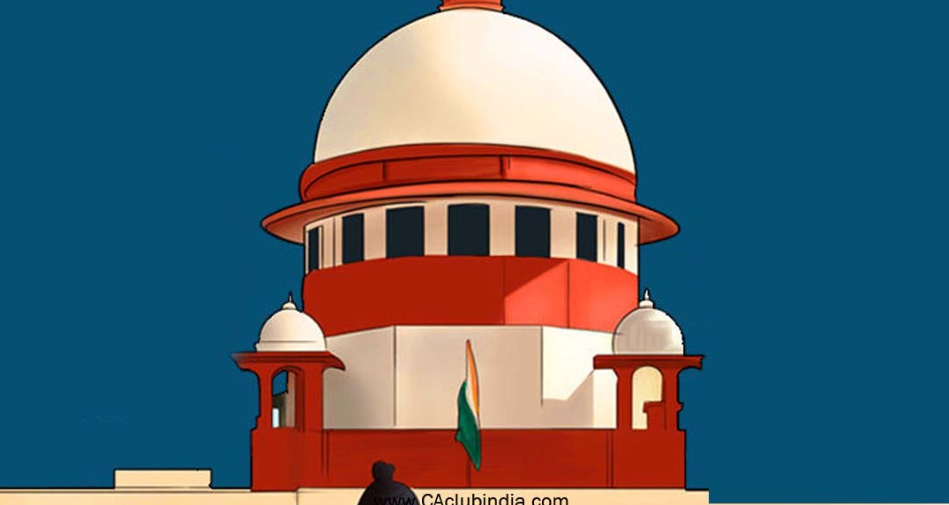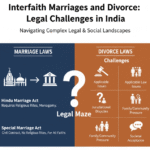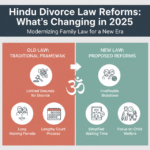Tax Law & The Indian Judicial Approach
Imagine that you are playing a game in which the rules keep changing, and sometimes you need a referee to tell you what’s fair and what isn’t. That’s what courts do when it comes to taxes in India! Thousands of people and businesses butt heads every year with tax departments over how much money they should hand over. When these disputes can’t be resolved quickly, they end up in court and judges resolve key issues to help guide everyone as to how the tax laws work.
Court decisions are guidebooks that demonstrate how tax laws are meant to function in the real world. They don’t just solve one person’s problem — they spawn examples to help millions of taxpayers and tax enforcers understand what is right and wrong. We will discuss in this article how the Indian courts have been instrumental in guiding us to interpret and comply with tax rules, by narrating in plain language along with real cases.
Why Court Decisions Matter in Tax Law
Consider tax laws to be like recipes codified in a cookbook. Sometimes the recipe would say, “add salt to taste,” but people do not agree on how salty that should be. Which is when you want someone experienced to show you the right amount. For tax laws, courts do just this — they interpret fuzzy rules and demonstrate how they should be applied.
Any decision a court makes on a tax case — that becomes a precedent. What this means is that any future cases with the same sort of situation will go the way of logic. Once the Supreme Court determines something is taxable or not, lower courts and tax authorities are bound to respect that judgment. This would make it same across the nation.
The Court System of India Applicable to Taxation Cases
| Court Level | Role in Tax Cases | Appealable By |
|---|---|---|
| Supreme Court | Final authority; jurisdiction throughout India | Taxpayers and tax department |
| High Courts | Landmark decisions for their state or area; can appeal to Supreme Court | Either side may appeal decisions of the tribunal |
| Income Tax Appellate Tribunal (ITAT) | First specialized court for income tax disputes | Anyone unhappy with Commissioner’s order |
| Commissioner (Appeals) | Initial level of appeals within the revenue department | Taxpayers who do not accept assessment |
Landmark Cases That Have Forever Altered Tax Rules
There are some tax cases that are so significant, they change the way we think about taxes entirely. These are called landmark judgments. Let’s take a look at some well-known examples every taxpayer should be aware of.
The Vodafone Case: When Does India Have the Power to Tax?
What Happened: A foreign company Vodafone acquired shares of another foreign company in 2007. The tax department argued that Vodafone had to pay taxes in India because those shares gave the Mukesh Ambani-controlled Reliance group control over an Indian business. Vodafone argued that as the sale took place in a foreign country, between two foreign companies, India could not tax it.
Supreme Court’s Decision (2012): The court ruled in favor of Vodafone, finding that India couldn’t tax this deal because it took place outside its country and was also within the rules of international law.
What We Learned: In India, this was a reminder that just because something has an impact in the country, doesn’t mean the country can tax it. The India connection must be evident. But the government would eventually alter the law to include such transactions, because court decisions also provide a path from judicial ruling to new law.
For more insights on tax law, visit Zista Legalis.
The Pepsi Foods Case: What Is and What Isn’t a Permanent Place of Business?
It’s a question that plagues many a foreign corporation doing business in India: when are we required to pay taxes under Indian law? Here, the principle of “Permanent Establishment” (PE) is very significant. In the world of PE, imagine having your own factory in a country for your business.
The Question: What did Indian companies do with PepsiCo and how? Did that mean PepsiCo had a permanent office in India and should pay taxes here?
Court’s Answer: No! The Supreme Court ruled that having someone sell your products is not enough to establish a permanent establishment. The Indian companies were also standalone businesses who were not agents, associates or branches of PepsiCo.
Impact: The ruling shielded thousands of foreign companies from surprise tax claims and established rules for when foreign companies should register and pay taxes in India.
How Courts Define “Income” in Various Contexts
The word “income” sounds straightforward, but in tax law, it’s not. It means a lot of different things. Courts have spent decades defining income and clarifying what isn’t. We break down some key principles.
Capital versus Revenue: The Submission in Perspective
Imagine you own a building. If you sell the building, that’s capital — you’re disposing of something that was yours. If you rent your apartment out every month, that rental money is revenue — income you earn regularly in exchange for using something you own. The tax treatment of these two is as different as can be!
Tax Treatment Comparison
| Type of Income | Tax Rate |
|---|---|
| Capital Gains | 20% |
| Business Income | 30% |
| Rental Income | 30% |
| Agricultural Income | 0% (Exempt) |
Authorized Tests: Courts have devised numerous criteria to determine whether something is capital or revenue.
Frequency Test: If you do something once or very occasionally it’s capital. If you do it all the time, it is income.
Purpose Test: Is this an item that you bought to keep and use, or is it something you acquired with the intention of selling it quickly at a profit?
Organization Test: Did you organize a business as the sole proprietorship to do this activity?
Agricultural Income: The Curious Case of a Conundrum
The Indian Constitution stipulates that the central government (but not state governments) cannot tax agricultural income. But what exactly is “agricultural income”? It’s a question that has spawned hundreds of court cases.
Court Guidelines on Agricultural Income
As per many of the decisions of the Supreme Court, agricultural income is:
- There is some farming going on
- Human labor and human skill is used to make land yielding
- The earnings come directly from the land itself
Simply owning farmland isn’t enough. You need to grow crops, or plants themselves. Courts have held that income from the sale of standing trees (without replanting) is NOT agricultural income precisely because there’s no continuing of cultivation.
GST Disputes and How Courts Are Shaping New Tax Laws
The GST was implemented on July 1, 2017 as a new tax in addition to some of the other older taxes. Because the GST is a relatively new concept, courts continue to interpret many of its rules. Every week brings new judgments to enlighten us on GST.
Input Tax Credit: The Major Dispute of GST
Imagine you’re making chocolates. You purchase sugar at the cost of ₹100 and GST of ₹18 (total ₹118). If you sell a chocolate of ₹200, you collect ₹36 tax. But you have already paid ₹18 as GST on sugar! So, you pay the government only ₹18 (₹36-₹18). The same is known as Input Tax Credit (ITC).
The courts have issued a number of key rulings regarding ITC:
| Issue | Court Decision |
|---|---|
| ITC on construction services | Can claim if used for business |
| Customer matching ITC | Cannot be denied just because the supplier did not pay |
| Time Limit for ITC | Imposed reasonableness and clearly communicated deadlines |
| ITC on demo products | Allowed if demos for promotion of business |
Classification Controversy: Is It a Good or Service?
GST rates run from 0% all the way up to 28%, depending on what you’re selling. There is a different tax rate for a restaurant meal than for packaged food. This creates disputes about classification.
The courts apply something called “the common parlance test” — how would a regular person describe this thing? For instance, is a printer with a connected computer one “computer system” or two? Courts ruled: If people usually purchase the items together as one, treat them that way for tax purposes.
Learn more about GST regulations on the Income Tax Department’s official website.

Taxpayers’ Rights: What the Courts Say You Deserve
Indian courts have a firm belief in safeguarding taxpayers’ rights. Judicial decisions over the long years of test cases have tended to confirm this: tax officers cannot act arbitrarily or capriciously.
Right to Fair Hearing
The principle of “natural justice” is that everyone deserves a fair opportunity to explain his or her side. The Supreme Court ruled in the famous case of Kishanchand Chellaram that tax assessments by the department without allowing a taxpayer an opportunity of being heard are invalid. This is true even if the statute does not explicitly provide for a hearing.
Right to Know Reasons
Tax officials have to be accountable for the decisions that they made. They can’t simply raise tax demand that “Tax demand is ₹10 lakhs” without a calculation. The courts have consistently said that speaking orders (orders that give reasons) are the rule.
What Makes a Valid Tax Order?
- Transparent income tax computation as well as tax
- Reasons for why some claims were not accepted
- Citation to appropriate law and facts
- Response to taxpayer’s submissions
- Reasonable opportunity for the taxpayer to be heard before determination
Common Tax Situations and Viewpoints from the Courts
Here are some daily scenarios where court rulings have offered guidance.
Salary and Perquisites
Are things like a company car, free meals or housing something you must pay taxes on when your employer provides them to you? Courts have created detailed rules:
Transport: Reasonable amounts spent on commute are non-taxable based on bills.
Medical: Up to limits tax-free if actual medical expenses are substantiated.
Company Housing: Taxable value is based on your Salary, City and whether furnished or not.
Children’s Education Perks: Tax free up to ₹100 per month per child for maximum of two children.
Deductions Under Section 80
The Income Tax Act permits deductions of certain costs and investments. There have been a number of confusing aspects to the court rulings:
Health Insurance (80D): Can we avail deduction on premium paid for insurance of unmarried sister? The court said no — only immediate family members are eligible.
Section 24b: Housing Loan Interest: Can I claim it if the construction is delayed, but the amount has been paid in terms of a bank loan for the house? Court said yes, but not until after construction is completed and you may be able to use the house.
Charitable Donations (80G): Do I need to donate to a registered charity at the time of donation, or can it be registered later? Court held donor registration should be present at the time of donation.
Penalty and Prosecution Determination: When Can You Be Punished?
If you make a mistake on your tax return, that does not mean penalties are automatically in your future. “Penalties are only for people who intentionally do wrong, not innocent mistakes,” the courts have repeatedly said.
The Intent Matters
In several judgments of the Supreme Court judges have said that penalty under the Income Tax Act requires guilty mind (mens rea in legal language). If you really did think that your tax filing was correct and had good reason for thinking that, but were just negligent in coming to be so mistaken, courts are typically unsympathetic to penalty.
However, if you:
- Hide income deliberately
- Maintain false books of accounts
- Claim fake expenses
- Create bogus transactions
Penalties, and even prosecution, can follow.
Reasonable Cause: Your Defense
Under Section 273B of the Income Tax Act, if you can prove a “reasonable cause” for why you didn’t do this or that then penalty won’t be applicable. The following have been held to be reasonable grounds:
| Situation | Accepted as Reasonable Cause? |
|---|---|
| Approved CA’s advice | Yes (reasonable) |
| Followed prior years assessment acceptance | No, consistency is required |
| Pure difference in Interpretation on new law | Yes (interpretation must be reasonable) |
| Calculation error with no intention to evade tax | Yes (simple mistakes are covered) |
| Fails to file return in time | Very rarely as it is assessed responsibility |
How to Use Court Rulings for Your Own Tax Matters
You may be asking yourself, “What do these court decisions do for me?” Here’s a practical guide:
Step 1: Find Relevant Judgments
You can also find tax decisions free at various websites:
- Indian Kanoon (indiankanoon.org)
- Income Tax Department’s official website
- Websites of High Court and Supreme Courts
- Professional tax websites and journals
Step 2: Consider Whether the Judgment Applies to You
Some judgments are more important than others. Check:
Which court decided it? Supreme Court judgments bind everyone. High Court rulings are binding on that state. The decisions of the Tribunal are persuasive but not binding.
Is it about the same law? Income Tax Act of 1961 Decision on 1961 statute applies to present. Not so in respect of old Act 1922.
Are facts similar? The judgment may not be much help if your situation is very different from the case.
Step 3: Quote Correctly in Appeals
In any letters to tax authorities or appeals, use language like this:
“Further, the proposition of law laid down by the Hon’ble Supreme Court in CIT Vs ABC Ltd. [2020] 120 taxmann.com 123: Under like circumstances this does not draw upon the penalties.”
Important Note: Even though court decisions may be used to support your facts, tax matters are convoluted and should be addressed with professional advice. Chartered Accountants and tax lawyers know the loops in law better and present their case well.
Recent Trends: What Courts Are Looking at Now
That’s because tax law is constantly changing, and courts are currently wrestling with several new issues:
Digital Economy Taxation
So, where does the tax go when you buy from Amazon or pay for Netflix? As more businesses cross borders online, just where they will face a lawsuit is the subject of court decisions:
- Permanent establishment caused by digital services
- Pricing in digital assets and transactions
- In what country should taxes be paid if customer and seller are in different countries
- Treatment of cryptocurrency transactions
Search and Seizure Actions
From time to time tax authorities would raid if they suspected that people were not paying the correct amount of tax. Courts are now imposing a tight leash:
- Such searches must be supported by credible information, not fishing expeditions
- Authorities to document basis for searching residents
- Taxpayer is entitled to accurate inventory of material seized
- Statements during search must be voluntary
International Taxation Issues
It’s a complex matter amid Indian companies going global and foreign players getting accustomed to the Indian ecosystem. Courts are frequently deciding on:
- Transfer pricing (an appropriate alignment of prices at which products are traded between related companies in different countries)
- Treaty benefits (when may nonresident companies rely on tax treaties?)
- Residence and tax home concepts
- Foreign asset reporting requirements
For expert legal advice on tax matters, visit Zista Legalis.
Frequently Asked Questions
Q1: Can I just skip the process and go to court if I don’t agree with my tax assessment?
No, you first need to approach the Commissioner (Appeals) in the tax department. It is only after that that you can proceed to the Income Tax Appellate Tribunal (ITAT), next to High Court, and finally Supreme Court if required. You must follow this hierarchy.
Q2: How long does a tax case take in courts?
It varies greatly. Cases at the tribunal might last 1-3 years, High Court cases 3-7 years and Supreme Court cases can take 5-10 years or longer. The duration is a function of caseload and how quickly the court processes cases, in addition to whether all documentation is correct.
Q3: Do taxpayers have to pay the disputed tax amount to appeal?
You are normally required to deposit 20 percent of the disputed tax in order to appeal before the Tribunal. But courts could, if you show good cause and economic hardship, issue a stay (temporary halt) on tax payment. Each case is decided individually.
Q4: Is it still possible to overturn an old court decision?
Yes, a larger bench of the same court or a higher court can overrule prior decisions. The Supreme Court is able to review its own decisions in special circumstances. Sometimes, Parliament changes the law to overrule court decisions effectively, such as following the Vodafone case.
Q5: Can I have access to a public copy of the tax tribunal judgment?
Most tribunal, High Court and Supreme Court decisions are available online. Now and then, names are anonymized. You can search on various legal databases by topic, section number or party name.
Q6: What happens if two High Courts decide a tax law differently?
This creates uncertainty. In your jurisdiction, you apply the judgment of your High Court. The tax department or taxpayers can take the matter to the Supreme Court, which will issue a final decision that would apply throughout the country. Until then, different states could have different rules.
Q7: May I handle my own case in tax court?
Yes, you can be present before the Commissioner (Appeals), and yes even before the Tribunal. However, Courts like High Court and Supreme Court generally ask for lawyers or chartered accountants. Professional representation is highly advised at all levels due to the complexity involved.
Q8: Does citing court cases ensure my appeal is successful?
Not necessarily. Now, while favorable judgments further strengthen your case, the tax authority will analyze whether those cases are actually relevant to your particular facts. They might also refer to conflicting decisions. The success of an appeal depends on clarity in setting out the facts and correct application of law.

Bringing It All Together
Court decisions are not just legal documents sitting dusty on library shelves — they are living how-to manuals that influence how millions of Indians file their taxes, and understand what they owe. Each time a judge reads a tax law, they’re effectively translating difficult legal language into practical rules the rest of us can follow.
Courts have been adding tiles (tax laws and principles) to the mosaic of tax code since the high-profile Vodafone case or over salary deductions that make up for everyday news – it has now become a fully filled-up jigsaw puzzle. They’ve secured taxpayers’ rights, brought much-needed clarity to ambiguous laws and made sure that tax administrators don’t act arbitrarily.
What is different about the Indian judiciary in tax is balance. Courts aren’t about calling balls and strikes for taxpayers v. the government — they don’t care just who “wins.” They think about the specific facts of each case, apply the law evenly, and create precedents that aid justice. They’ve hammered home again and again that taxation – necessary to operate the country, of course – must be reasonable, predictable and grounded in clear legal authority.
Whether you’re a student getting to know taxes, a professional filing returns or a business owner handling GST, knowing how courts interpret tax laws is empowering. It gives you the information you need to understand your rights, make well-informed choices and face tax situations with confidence.
Remember, taxes aren’t just about paying money to the government — they’re about doing your duty while making sure you are treated fairly. Court rulings are here to help! They give you answers when the laws seem unclear, and they shield you when those in power go too far. Simply by keeping up to date with significant tax decisions, you will be a better informed and thus more empowered taxpayer.
The next time there’s a mention of a tax court case in the news don’t just keep scrolling. That ruling could include principles that apply to your own taxes. In Indian tax jurisprudence, court decisions are not just adjudicating the law: They represent practical wisdom to help us all navigate through the difficult, yet crucial, universe of taxes.



